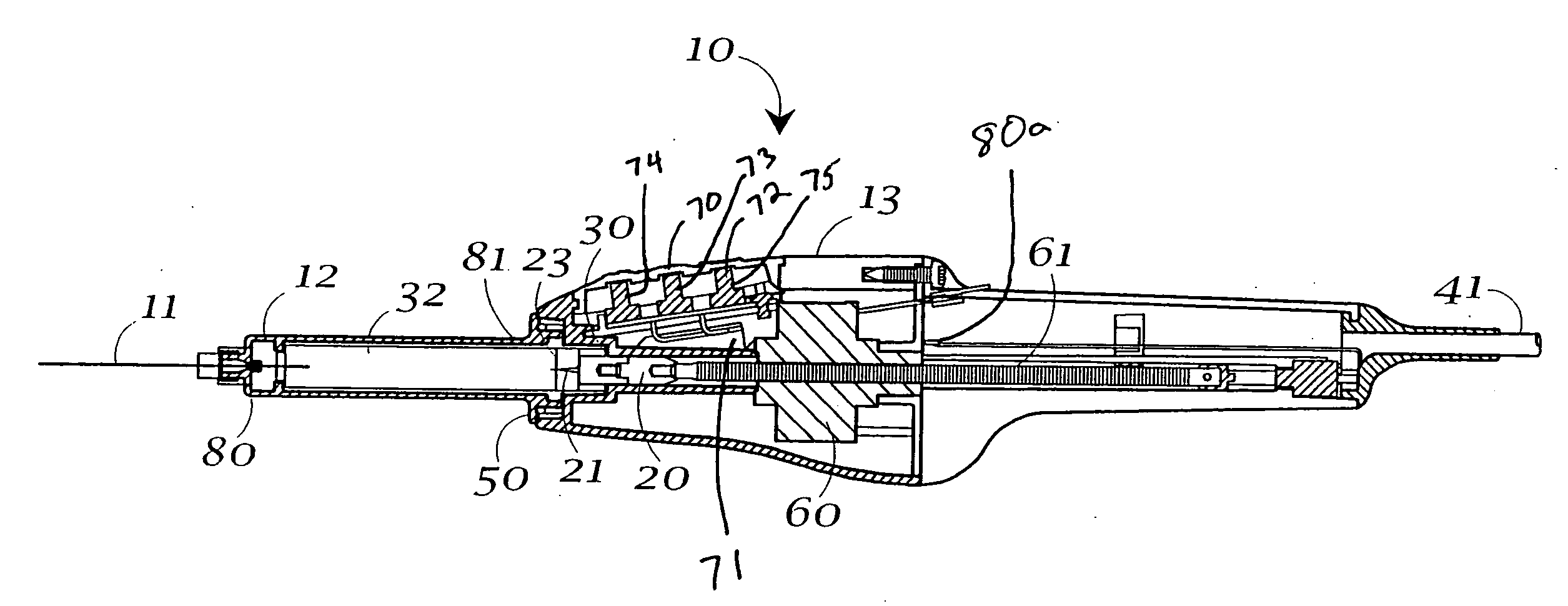Fluid material dispensing syringe
a technology of fluid material and syringe, which is applied in the field of syringe, can solve the problems of high fluid pressure, potential danger of injecting anesthetic in the bloodstream, and limited maximum fluid pressure, and achieve the effect of increasing the rate of local anesthetic delivery
- Summary
- Abstract
- Description
- Claims
- Application Information
AI Technical Summary
Benefits of technology
Problems solved by technology
Method used
Image
Examples
Embodiment Construction
[0045] An exemplary computer controlled syringe, embodying the concepts of the present invention, is generally shown by the number 10 on the attached drawings. Syringe 10 has a dispensing tip 11 fluidly affixed to a carpule holder 12, which carpule holder 12 is releasably affixed or connected to a syringe power unit 13.
[0046] Carpule holder 12 is initially (that is, prior to dispensing) loaded with the material to be dispensed (not shown) by any conventional means, such as a conventional carpule or the like. Any carpule capable of being dispensed by the action of a physically engaging plunger (to be discussed below) is within the scope of the invention. Carpule holder 12 may be affixed to syringe 10 by any conventional means, including for example, bayonet connector 50 at one end of carpule holder 12. At it other end, carpule holder 12 is preferably provided with means to affix or removably affix the dispensing tip 11. In the case of the use of syringe 10 to dispense a dental anest...
PUM
 Login to View More
Login to View More Abstract
Description
Claims
Application Information
 Login to View More
Login to View More - R&D
- Intellectual Property
- Life Sciences
- Materials
- Tech Scout
- Unparalleled Data Quality
- Higher Quality Content
- 60% Fewer Hallucinations
Browse by: Latest US Patents, China's latest patents, Technical Efficacy Thesaurus, Application Domain, Technology Topic, Popular Technical Reports.
© 2025 PatSnap. All rights reserved.Legal|Privacy policy|Modern Slavery Act Transparency Statement|Sitemap|About US| Contact US: help@patsnap.com



